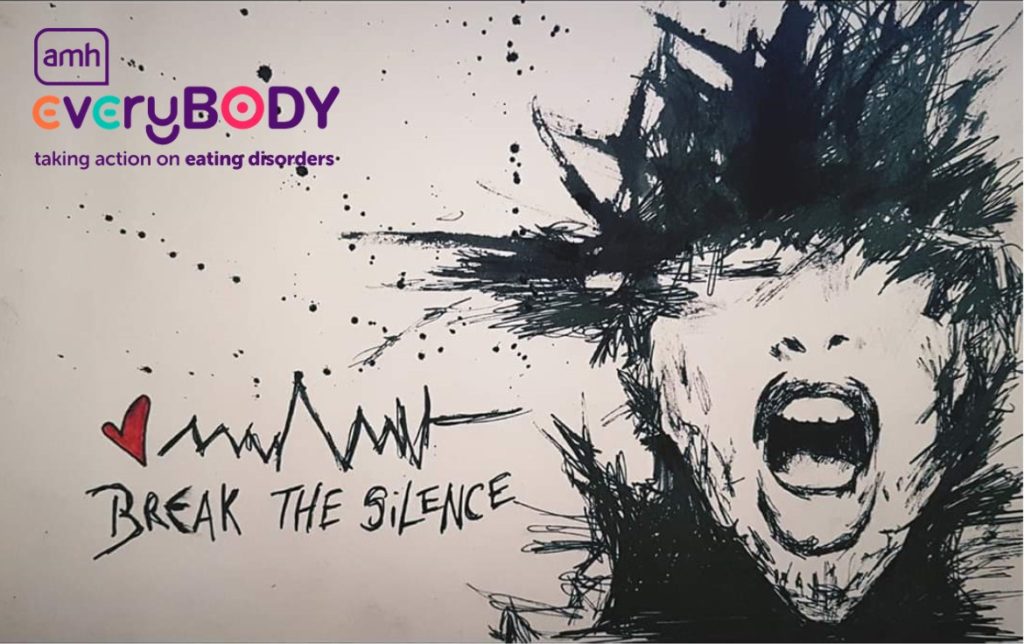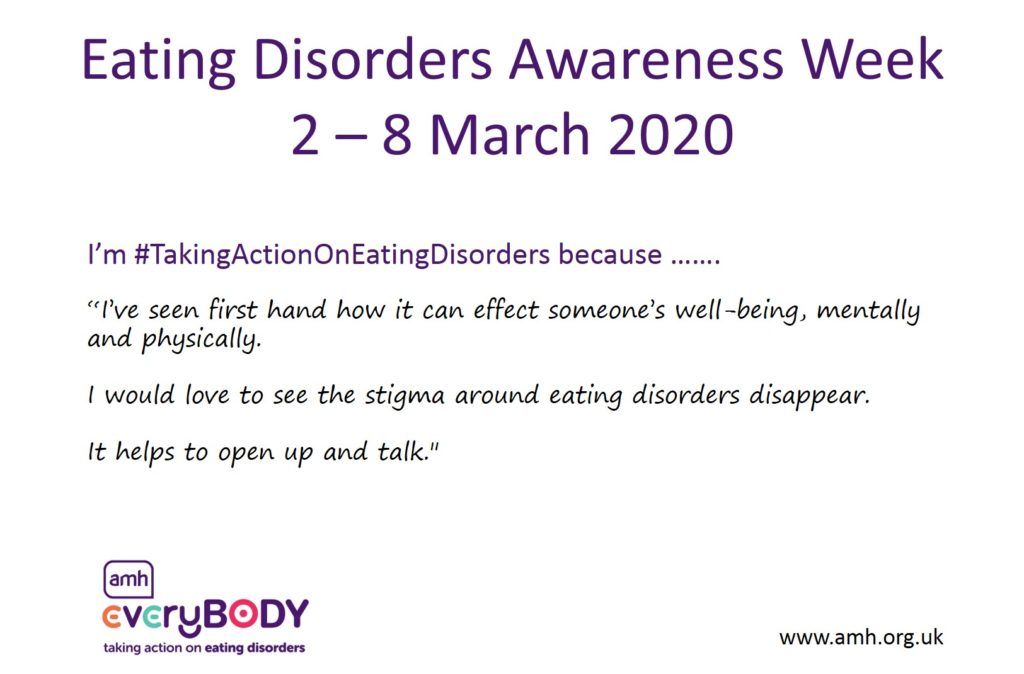
On Day Two of Eating Disorders Awareness Week 2020 we assess the common myths and misconceptions that exist around eating disorders which can act as an obstacle to seeking help, for some people. The following myths are among those regularly heard by AMH everyBODY project workers:
Eating disorders are serious psychological illnesses which NO-ONE can CHOOSE to develop. Eating disorders develop as a result of a complex interaction between psychological, social and biological factors. Each person’s experience of an eating disorder will be unique to them. No-one can choose to develop an eating disorder;
Eating disorders thrive in secrecy. The average times it takes someone to speak out and seek help for an eating disorder is three years. Three years is too long for anyone to be struggling in silence. We can help to change this by smashing the stigma and removing the shame.
Anyone can develop an eating disorder, regardless of gender. Men can and do develop eating disorders, 25% of reported cases are male. Eating disorders do not discriminate along any lines whether that is gender, race, socio-economic status or age;
Eating disorders are serious psychological illnesses which cannot be fully assessed on objective measures such as weight and shape. Eating disorders come in all shapes and sizes and you cannot tell by looking at someone whether or not they have an eating disorder. Many people who may appear to be within a normal weight range can actually be seriously struggling with a very serious eating disorder. These misconceptions can perpetuate the problem and may cause distress for those with an eating disorder who don’t look a certain way for fear of not being “sick enough” or “good enough” at their disorder to deserve treatment.
Eating disorders are serious psychological illnesses and must be treated as such. Early intervention and support is vital and greatly improves prognosis of the illness. If you suspect you have an eating disorder or you suspect a loved one has an eating disorder, please seek help now. Eating disorders do not just go away;

Eating disorders are serious psychological illnesses. Individuals with eating disorders generally have a preoccupation with food and weight, but the symptoms of an eating disorder can extend far beyond food. Research has shown links between eating disorders, perfectionism, and obsessive compulsions, which can lead to a fixation on grades, sports performance, etc. At the core an eating disorder is used as a coping mechanism for difficult emotions and situations, and much more to do with how a person is feeling and their sense of self.
While evidence indicates that adolescence is an extremely vulnerable stage for the development of an eating disorder, eating disorders can and do develop at any age. Eating disorders do not discriminate and anyone at any age can develop an eating disorder;
What appears to be a strict diet on the surface may actually be the beginning of an eating disorder. Even if the symptoms do not meet the criteria for a clinical eating disorder diagnosis, disordered eating can have serious medical consequences, such as anemia and bone loss. Individuals dealing with serious disordered eating may benefit from intervention and treatment to address their concerns before it becomes a full-blown eating disorder. Chronic dieting has been associated with the later development of an eating disorder, so addressing these issues right away may prevent development into an eating disorder.
People can and do recover from eating disorders. Recovery is always possible. Recovery can take time and it can be extremely challenging but recovery is always possible.
As a community we can improve awareness of Eating Disorders by being aware of these misconceptions and changing the conversation. Ensuring that there is an open conversation on the subject and removing any shame attached. Eating Disorders do not have a shape or size, they can affect anyone, anywhere, and everyBODY is deserving of help and support.
